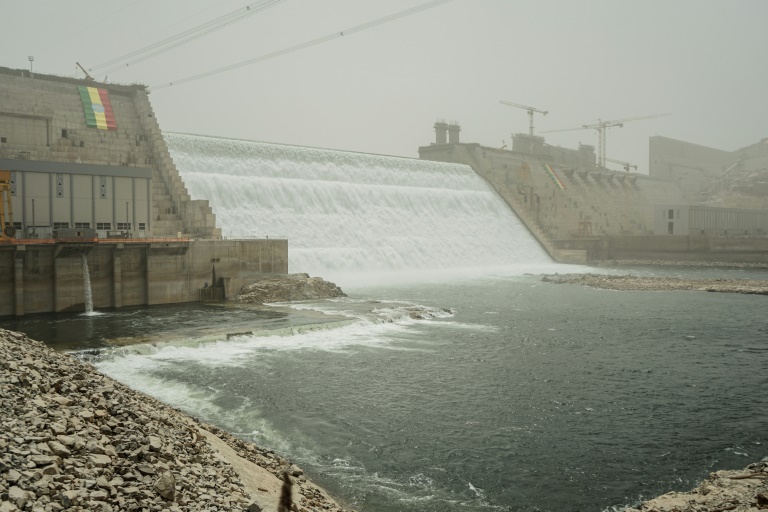Ethiopia said Saturday it had begun a second round of talks with Egypt and Sudan over a controversial mega-dam built by Addis Ababa on the Nile, long a source of tensions among the three nations.
Ethiopia this month announced the completion of the fourth and final filling of the Grand Ethiopian Renaissance Dam, prompting immediate condemnation from Cairo, which denounced the move as illegal.
Egypt and Sudan fear the massive $4.2-billion dam will severely reduce the share of Nile water they receive and had repeatedly asked Addis Ababa to stop filling it until an agreement was reached.
For years at loggerheads over the issue, Egyptian President Abdel Fattah al-Sisi and Ethiopian Prime Minister Abiy Ahmed agreed in July to finalise a deal within four months, resuming talks in August.
Ethiopia’s foreign ministry wrote on X, formerly known as Twitter, that the three countries had opened a second round of negotiations in Addis Ababa.
“Ethiopia is committed to reaching a negotiated and amicable solution through the ongoing trilateral process,” it said.
Protracted negotiations over the dam since 2011 have thus far failed to bring about an agreement between Ethiopia and its downstream neighbours.
Egypt has long viewed the dam as an existential threat, as it relies on the Nile for 97 percent of its water needs.
Egyptian Foreign Minister Sameh Shoukry, in an address to the UN General Assembly, said that Cairo wanted a “binding agreement” on the filling and operation of the dam.
“We remain in anticipation of our goodwill being reciprocated with a commitment from Ethiopia to arrive at an agreement that will safeguard the interests of Egypt, Sudan, and Ethiopia,” Shoukry said.
“It would be a mistake to assume we can accept a fait accompli when it comes to the very lives of more than 100 million Egyptian citizens.”
The dam is central to Ethiopia’s development plans, and in February 2022 Addis Ababa announced that it had begun generating electricity for the first time.
At full capacity, the huge hydroelectric dam — 1.8 kilometres long and 145 metres high — could generate more than 5,000 megawatts.
That would double Ethiopia’s production of electricity, to which only half the country’s population of 120 million currently has access.
The position of Sudan, which is currently mired in a civil war, has fluctuated in recent years.
The United Nations says Egypt could “run out of water by 2025” and parts of Sudan, where the Darfur conflict was essentially a war over access to water, are increasingly vulnerable to drought as a result of climate change.
AFP






